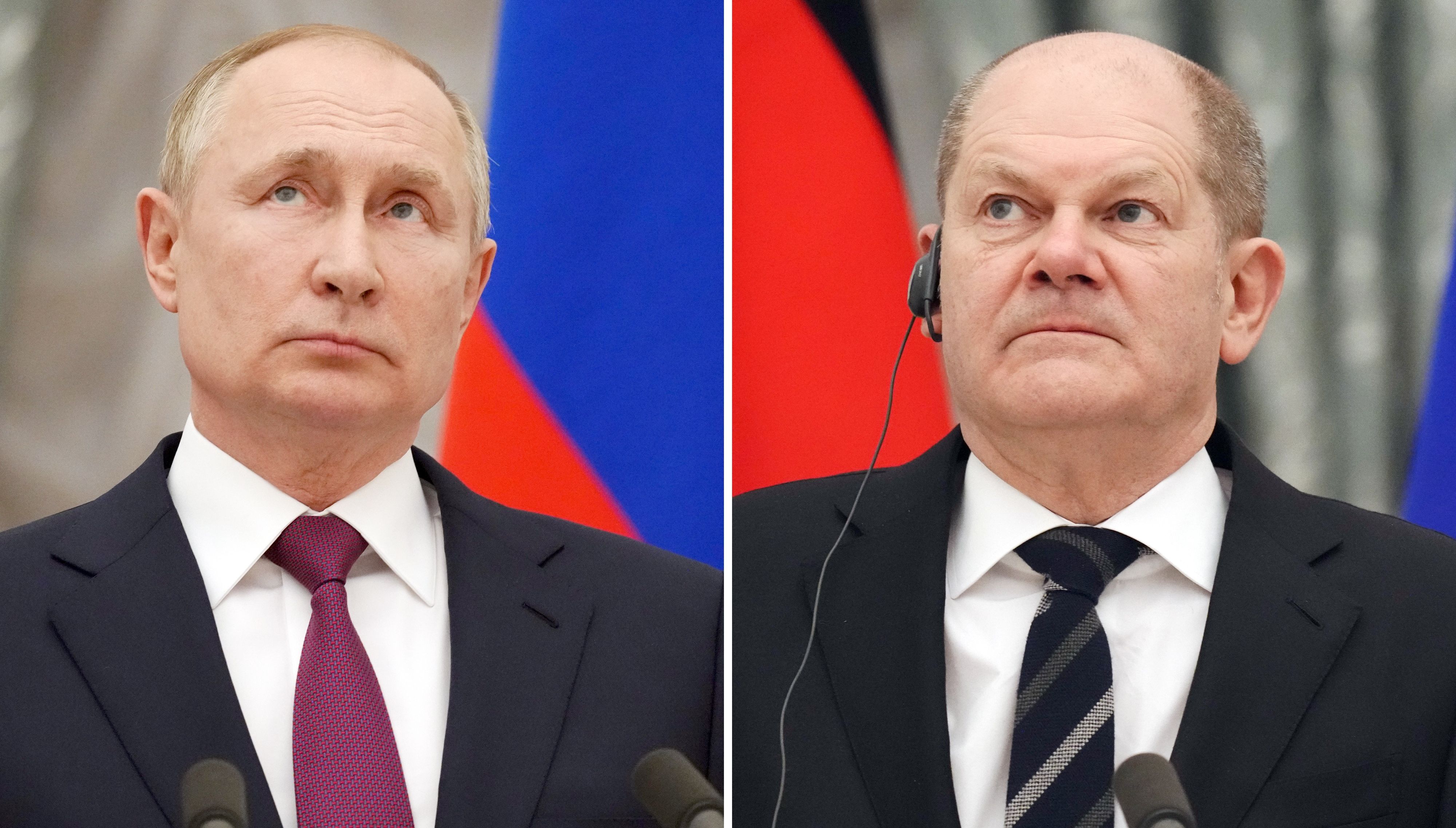For the first time in two years, a head of state of a major Western country has spoken with Vladimir Putin, breaking with the Western pattern of isolating the Russian president.
On November 15, German Chancellor Olaf Scholz initiated a phone call with Putin. Scholz says he made the call because "[i]t was important to tell [Putin] that he cannot count on support from Germany, Europe and many others in the world waning.”
Scholz delivered four key points to Putin, according to a German government spokesperson. He condemned Russia’s attack on Ukraine and demanded that Russia withdraw its troops and “be willing to negotiate with Ukraine with the aim of achieving a just and lasting peace.” He told Putin that the deployment of North Korean troops was a “grave escalation.” He condemned Russia’s attacks on civilian infrastructure. And he promised “Germany’s unwavering determination to support Ukraine in its defensive struggle against Russian aggression for as long as necessary.”
Scholz told reporters that the “conversation was very detailed but contributed to a recognition that little has changed in the Russian President's views of the war — and that's not good news."
Kremlin spokesman Dmitry Peskov called the conversation “detailed” and “frank,” though they reached no “convergence of opinion.”
Putin told Scholz that Russia “has never refused” to negotiate a diplomatic settlement and that he “remains open to the resumption of the negotiations that were interrupted by the Kiev regime.” Those negotiations, he said, should be based on terms he outlined in June, that included a withdrawal of Ukrainian troops from the territories annexed by Russia — but not a formal recognition of the annexation — and a written guarantee not to join NATO.
He added that any negotiated agreement “should take into account the interests of the Russian Federation in the security sphere, proceed from new territorial realities, and most importantly, eliminate the root causes of the conflict,” including NATO expansion and its “aggressive policy aimed at creating in Ukrainian territory an anti-Russian bridgehead.”
Putin said that “the very fact of dialogue is positive.” Ukrainian President Volodymyr Zelensky disagreed, calling the phone call “a Pandora’s box.” Zelensky worried that Scholz’s decision to call Putin could lead to “other conversations.”
Also commenting on the call, Canadian Prime Minister Justin Trudeau, a strong supporter of defending Ukraine against the Russian invasion, said that it is “important… to see an end to the violence in Ukraine” and that that “requires a level of engagement with counterparts who in many cases we disagree with.” Zelensky complained that Scholz’s call was “exactly what Putin has been wanting for a long time: it is extremely important for him to weaken his isolation, Russia’s isolation, and to conduct ordinary negotiations that will not end in anything.”
Though “Zelensky and other European officials” reportedly “cautioned Scholz against the move,” Scholz says that he “was not acting on his own, but rather in consultation with others.”
It seems unlikely that the hour long phone call expired after Scholz and Putin repeated what both had already often said: that Scholz condemns the war and that Putin demands neutrality for Ukraine and a recognition of the new territorial reality.
The Kremlin says that, discussing energy, Putin also told Scholz that Russia “is ready for mutually beneficial cooperation if the German side shows interest in this."
Scholz assured Putin of Germany’s “unwavering determination to support Ukraine… for as long as necessary.” But his government has already made the decision to terminate funding for new military aid for Ukraine. And, on November 4, Scholz told NATO Secretary General Mark Rutte that he opposes Ukraine’s NATO membership aspirations. Instead, there has reportedly been talk in Berlin of Ukraine negotiating peace and security arrangements in exchange for a promise of neutrality and of withdrawal from territory claimed by Russia without formally recognizing the territory as Russian, along the lines of the Finland model during the Cold War.
The phone call to Putin is not the first time Scholz has broken with the West on negotiating with Putin over his unprovoked invasion of Ukraine. In December 2022, Scholz said that “there is a willingness” to engage with Putin and that “all questions of common security could be solved and discussed.”
The complete content of the phone call is not known. It is not known whether, in addition to the maximalist positions reported, any of these more nuanced positions were discussed. Despite Moscow’s insistence that no “convergence of opinion” was reached and Berlin’s evaluation that “little has changed in the Russian President's views of the war - and that's not good news," perhaps the good news, the hopeful news, is that German officials say that “Putin and Scholz agreed to stay in contact.”















